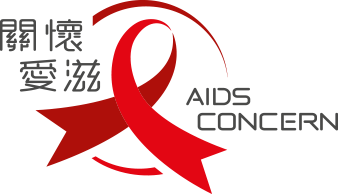Young people STDs infection rate hits record high Lack of sex education is the main culprit

In order to understand the sexual behavior patterns of 13-25 year old young people, AIDS Concern conducted a survey of 493 young men and women from January 2017 to October 2017 to understand their condom use and sexually transmitted diseases rate.
Among the respondents, 62% (305/493) young men and 38% (188/493) young women were interviewed. All of the respondents experienced one or more sexual behaviors within 6 months before the survey. The condom usage rates during sexual intercourse among respondents in the past 6 months are as follow:

The condom use rate among young women is lower than young men. Only 44% of the young men who used to have sex with their boyfriend/girlfriend in the past 6 months used condoms every time, while only 20% young women did so.
The main reason why young men did not use condoms is that young men didn’t see any significant symptoms of sexually transmitted diseases (STDs) from their partners (91%; 278/305). While for young women, their partners asked them not to use condoms and they only have one regular sex partner (41 %; 79/188) are the major concerns of not using sexual protection. These incorrect concepts are exposing youth to greater danger of sexual health.
The survey also found that 11% of the respondents infected with STDs (29/263). The STD infection rate of young women is 17.5% (22/126), higher than the young men 5.1% (7/137). The major STDs they had were gonorrhea and chlamydia. According to a 2017 study on STDs and sexual health conducted by The University of Hong Kong[1], the overall infection rate of chlamydia in Hong Kong was 1.4%. The study showed the STDs infection rate amongst youth should be paid with more attention in Hong Kong.
Another result showed by our survey is that 34% (63/188) of the young women underestimated their risk of getting STDs, much lower than the underestimation that young men had 9% (28/305). This indicates that the young women did not understand the transmission and the risk of STDs, and were putting themselves at risk.
‘Negative stereotypes of asking to use condoms are still common to be seen. For example, if women take the initiative to ask for condoms, they are regarded as sexually promiscuous and causal. This notion greatly hinders the motivation of women to use condoms and increases their risk of getting sexually transmitted diseases.’ Jim Hoe, Project Manager (Community Studies and Youth) of AIDS Concern suggested.
In order to raise the awareness amongst the general public and young women about self-protection, AIDS Concern has collaborated with Durex, one of the biggest condom companies, in organizing a youth sexual health program called “女神要有Say”. AIDS Concern visited local universities to provide positive sex education to young people. We are also inviting Mr. Chapman To, Professor Sik-Ying Ho, Department of Social Work and Social Administration, University of Hong Kong and Dr. Man-Kit Cho, Lecturer, Gender Studies Programme, The Chinese University of Hong Kong from Hong Kong Chinese University to join our sexual health talk called “Time For Sex, Time To Talk” on LT1, Esther Lee Building (ELB), the Chinese University of Hong Kong.
In addition, AIDS Concern will host a World AIDS Day Testing Week from December 4 to December 10 to provide free, anonymous and confidential HIV and STDs tests for the public. We urge the young people who have had unsafe sex to conduct tests as soon as possible. To register, please visit the online booking system https://test.aidsconcern.org.hk/eng/appointment or hotline at 2394 6677.
For media enquiry, please contact Tobey Tse, Marketing and Communications Officer at tobey.tse@aidsconcern.org.hk or 2864 1315/ 2394 6677.
About AIDS Concern (https://aidsconcern.org.hk/)
AIDS Concern was established in 1990 as the first non-government charity organisation committed to the service of AIDS care in Hong Kong. Our vision is to create “TRIPLE ZERO” Hong Kong, this means ZERO new infections, ZERO stigma and ZERO AIDS deaths. AIDS Concern will lead social changes by individuals, organisations and society to achieve TRIPLE ZERO, to stop the spread of HIV/AIDS and eliminate stigma for people living with HIV
[1] https://www.hku.hk/press/press-releases/detail/c_15982.html (港大進行香港首個性病普查發現香港年青人及中年女性衣原體感染率高, 20170227)

